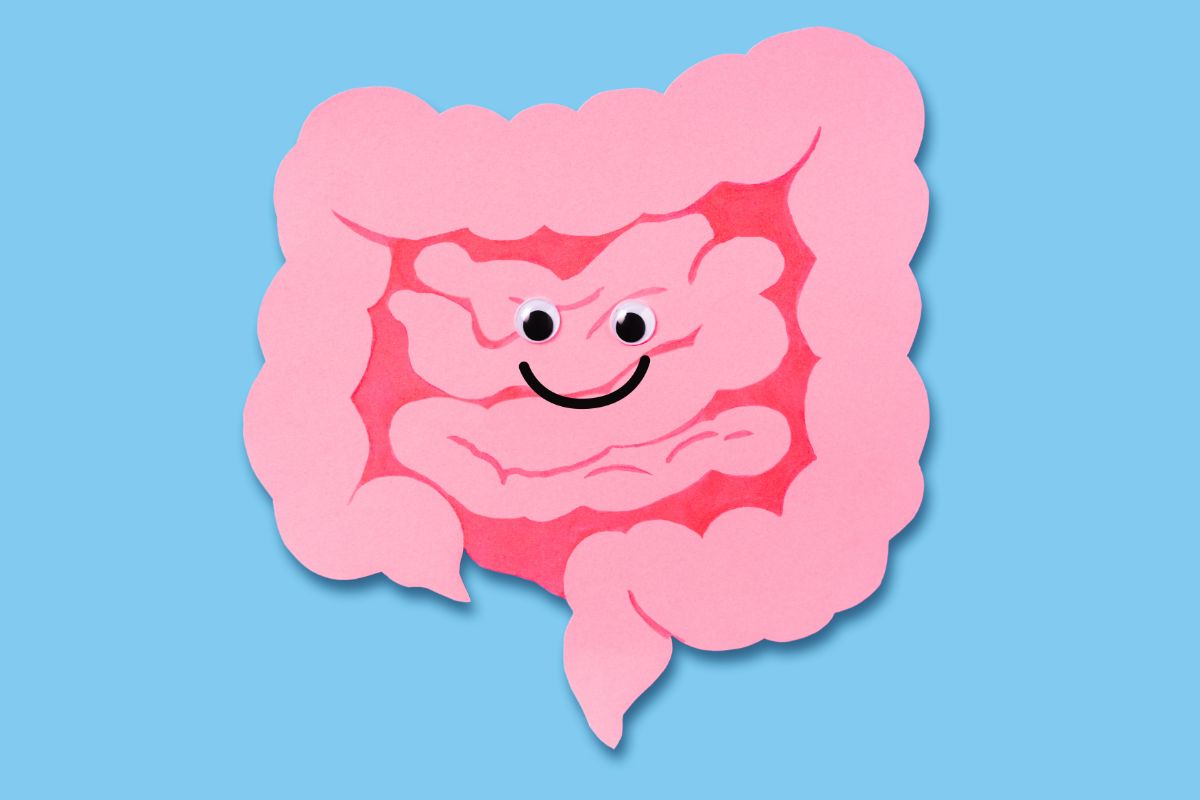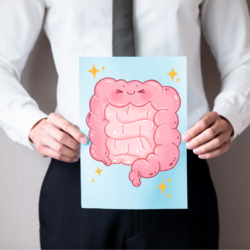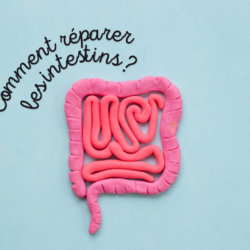Fecal transplantation, also known as faecal microbiota transplantation (FMT), is a revolutionary medical procedure that involves transferring a medically treated faecal sample from a healthy person into the digestive tract of a sick patient. Although the idea may sound unappetising, the method offers significant therapeutic benefits thanks to the thousands of beneficial microorganisms it introduces into the recipient’s gastrointestinal tra ct. Although the majority of its benefits are still in the research phase, faecal transplantation is already prescribed by healthcare professionals to treat recurrent infections with Clostridium difficile or C. diff. The procedure can be performed on adults and children alike, and aims to restore a healthy balance to the intestinal flora.
What is a faecal transplant?
Faecal transplantation, also known as faecal microbiota transplantation (FMT ) or bacteriotherapy, is a medical technique that aims to restore the balance of intestinal microbiota in a sick patient. The procedure involves taking a small sample of faeces from a healthy person and transferring it to the colon of a patient suffering from an intestinal disorder. Each healthy faecal sample contains thousands of beneficial microbiota capable of improving the health of the diseased colon in a variety of ways.
Why is a faecal transplant prescribed?
Health professionals currently prescribe this technique to treat serious bacterial infections of the colon. The faecal sample introduced provides a set of useful microbiota that help to eliminate pathogenic bacteria. By restoring a healthy balance to the intestinal flora, faecal transplantation offers an effective alternative for combating recurrent antibiotic-resistant infections, such as those caused by the bacterium Clostridium difficile (C. diff).
Who can benefit from a faecal transplant?
At present, faecal transplantation is mainly prescribed for people with persistent Clostridium difficile (C. diff) infections, particularly when these infections become resistant to antibiotics or cause colitis, an inflammation of the colon. In these cases, faecal transplantation has often proved more effective in eliminating the infection than traditional antibiotic treatment.
Could FMT be used to treat other diseases?
To date, there is no solid scientific evidence that this technique is safe and effective in treating problems other than C. diff infection. Nevertheless, research is underway to explore its potential in the treatment of a variety of conditions, including:
- Anxiety disorders (10)
- Irritable bowel syndrome (IBS) (11)
- Obesity (4)
- Multiple sclerosis (MS) (5)
- Autism spectrum disorders (ASD) (9)
- Food allergies (7)
- Diabetes (2)
- SIBO, SIFO (1)
- Inflammatory bowel disease (IBD), including ulcerative colitis and Crohn’s disease (8)
- Liver disease (6)
- Depression (3)
How does a faecal transplant work?
Every digestive system is a complex community made up of billions of micro-organisms, most of which are beneficial. These play a crucial role in various bodily functions, including digestion and regulation of the immune system. However, various factors such as drug treatments, illnesses or even dietary imbalances can disrupt this delicate ecosystem. Fecal transplantation is therefore a potentially effective solution for restoring the balance of the intestinal microbiome.
What are the different methods of faecal transplantation?
Fecal microbiota transplantation (FMT) is an evolving therapy with several different delivery methods. Each of these techniques has specific advantages and disadvantages:
1. Colonoscopy
This technique is often preferred because of its diagnostic and therapeutic accuracy. A colonoscope endoscope, a thin tube with a camera at the end, is inserted into the colon via the rectum. A liquid mixture of the donor’s faeces and a saline solution is then sprayed onto the inner walls of the colon.
Advantages:
- Allows direct visualisation of the colon
- Homogeneous distribution of microbiota
Disadvantages:
- Invasive procedure
- Requires sedation
2. Upper endoscopy
In this approach, an endoscope is inserted through the mouth or nose and traverses the oesophagus to reach either the stomach or the small intestine.
Advantages:
- Option for those who cannot undergo colonoscopy
Disadvantages:
- Less effective, as the microbiota has to pass through the small intestine to reach the colon
- Possible loss of microbiota during transit
3. Enema
This method involves introducing a solution containing the microbiota directly into the rectum using a tube. The first FDA-approved FMT treatment, Rebyota™, is administered via this method.
Advantages:
- Less invasive procedure
- Easier to administer
Disadvantages:
- Less complete coverage of the colon
- Potentially less effective
4. Oral capsule
These are gastro-resistant capsules containing freeze-dried faecal microbiota. They are designed to dissolve only when they reach the colon. SER-109 or VOWST™ is an FDA-approved therapy that uses this method.
Benefits:
- Easy to administer
- Non-invasive
Disadvantages:
- Risk of premature dissolution of the capsule
- Less control over the distribution of the microbiota
These methods can be chosen according to the clinical context, patient preferences and medical recommendations. It is crucial to consult a healthcare professional to determine the most appropriate method of FMT for your condition.
How do I become a donor for FMT?
An ideal donor for faecal microbiota transplantation is a healthy adult who meets very specific criteria:
- No antibiotics taken in the last six months
- No weakened immune system
- No chronic gastrointestinal disorders
- No risk of infectious diseases
Medical verification process
Before being accepted as a donor, volunteers must undergo a series of rigorous medical tests carried out by their doctor. These include:
- Screening for syphilis
- Screening for Clostridium difficile (C. diff)
- Screening for HIV
- Tests for intestinal parasitic infections
- Tests for hepatitis A, B and C
Deferral conditions
A volunteer may be excluded as a potential donor if his or her assessment reveals certain elements, such as :
- Antibiotic-resistant or invasive bacteria, such as E. coli
- Family history of cancer
- Inflammatory bowel diseases
- Viral infections
- Transient infections such as viral gastroenteritis and chronic infections such as COVID-19, HIV, etc.
- Hereditary metabolic disorders
- Recent use of antibiotics
- Intestinal parasites
- Autoimmune diseases
Can a faecal transplant be carried out at home?
It isnot recommended that you try to perform a faecal microbiota transplant (FMT) yourself, either to save time or money. Here are a few reasons why this approach is not recommended:
- Risk of infection: Donating faeces requires careful screening to detect the possible presence of harmful bacteria, infections or medicinal substances. A DIY (Do-It-Yourself) faecal transplant could expose the recipient to a serious risk of infection.
- Invisible danger: Even if the donor appears healthy, he or she may be carrying bacteria or viruses that are not immediately apparent but that can cause serious complications.
For these reasons, it is imperative to always consult a qualified healthcare professional for any procedure related to FMT. The safety and effectiveness of the treatment can only be guaranteed by appropriate medical supervision.
Are there any risks associated with faecal microbiota transplantation?
Although faecal microbiota transplantation (FMT) is generally considered to be a safe treatment option, it is not completely free of risks or side effects. Here are some of the potential problems that can occur:
- Antibiotic side effects: Antibiotics often given as an adjunct to FMT can cause discomfort such as diarrhoea, skin rashes and nausea.
- Gastrointestinal problems: After the procedure, some patients may experience temporary intestinal problems or feelings of nausea.
- Severity and duration: According to current research, these side effects are generally not serious and tend to resolve naturally over time.
It is essential to discuss the associated risks with your doctor and the steps you can take to minimise them, especially if you have pre-existing medical conditions that could make you more vulnerable to complications.
The benefits of faecal transplantation for cancer patients
In the field of oncology, faecal microbiota transplantation (FMT) is beginning to reveal its potential as a complementaryapproach to cancer treatment. Recent research suggests that manipulation of the gut microbiome could enhance the efficacy of immunotherapies in certain cancer patients.
Immunotherapy and treatment resistance
PD-1 and PD-L1 inhibitors, which are types of immunotherapy, have shown promising results for several forms of cancer. However, a number of patients do not respond favourably to these treatments. A study conducted by the National Cancer Institute (NCI) Center for Cancer Research, in collaboration with UPMC Hillman Cancer Center, explored the possibility of improving responsiveness to these drugs via FMT.
Fecal transplantation and response to treatment
The study targeted patients with advanced melanoma who were unresponsive to immune checkpoint inhibitors such as pembrolizumab (Keytruda) or nivolumab (Opdivo). The results showed that some patients began to respond to immunotherapy after receiving a faecal microbiota transplant from a patient who had responded well to treatment.
Biological mechanisms
Analysis of the patients’ gut microbiome revealed significant changes in those who responded well to FMT. In particular, there was an increase in bacteria associated with T-cell activation and a favourable response to immune checkpoint inhibitors. In addition, changes in biomarkers and immune system molecules were observed, indicating a favourable change in response to treatment.
Future prospects
Further research is needed to identify the specific microorganisms and biological mechanisms that overcome resistance to immunotherapies. However, these initial data provide evidence that the intestinal microbiome may be a potential therapeutic target in the treatment of cancer.
TMF could therefore represent a promising therapeutic avenue for improving the efficacy of anti-cancer treatments, particularly immunotherapies. Current research is aimed at confirming these results and developing selection criteria to identify the patients most likely to benefit from this innovative approach.
Source:
- https://www.ncbi.nlm.nih.gov/pmc/articles/PMC3365524/
- https://www.ncbi.nlm.nih.gov/pmc/articles/PMC4749851/
- https://pubmed.ncbi.nlm.nih.gov/33542131/
- (1) https://www.ncbi.nlm.nih.gov/pmc/articles/PMC7866462/
- (2) https://www.ncbi.nlm.nih.gov/pmc/articles/PMC6979041/
- (3) https://pilotfeasibilitystudies.biomedcentral.com/articles/10.1186/s40814-023-01235-z
- (4) https://www.ncbi.nlm.nih.gov/pmc/articles/PMC7693552/
- (5) https://www.ncbi.nlm.nih.gov/pmc/articles/PMC5882466/
- (6) https://www.ncbi.nlm.nih.gov/pmc/articles/PMC9311594/
- (7) https://pubmed.ncbi.nlm.nih.gov/36296181/
- (8) https://www.ncbi.nlm.nih.gov/pmc/articles/PMC7500646/
- (9) https://pubmed.ncbi.nlm.nih.gov/36544550/
- (10) https://www.ncbi.nlm.nih.gov/pmc/articles/PMC7294648/
- (11) https://pubmed.ncbi.nlm.nih.gov/35709830/





